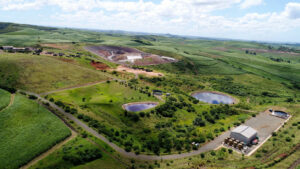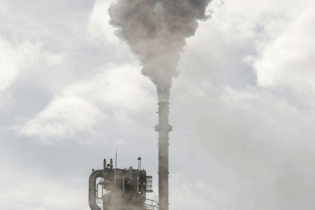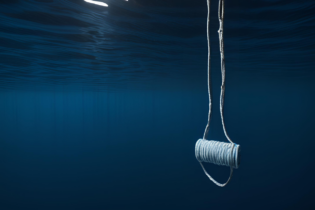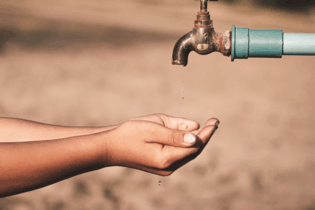Dolphin Coast Landfill Management (DCLM), operated by Veolia, has partnered with Global Alliance Africa, a project of Innovate UK KTN, the UK government’s largest innovation network, to launch an initiative aimed at cleaning up contaminated wastewater and repurposing refuse at one of South Africa’s largest landfills.
Located along the North Coast of Kwa-Zulu Natal, the 144.6-hectare site processes a variety of hazardous and non-hazardous materials, serving multiple communities in the area. Moreover, the site plays a crucial role in processing waste generated by the local paper manufacturing industry. The initiative sees DCLM, the landfill operator, launch two Open Innovation challenges. These challenges look to connect organisations with solutions found typically outside of their immediate industry. Applications are therefore open to innovators and entrepreneurs from all sectors in South Africa. Finalists will have the opportunity to present their ideas to DCLM, with winning applicants given the opportunity to collaborate on a pilot project at their North Coast site. Winners can also secure up to GBP 25,000 (ZAR 593,000) in seed funding, which will be supplemented by technical support from the DCLM team, as well as mentorship and access to sector expertise through the Global Alliance Africa project. “Population growth and resource scarcity mean we need to start exploring more circular models of how we produce, consume, and treat waste. Older and linear approaches can’t keep up with the demands of today, let alone tomorrow. As landfill operators, we need to start working with the communities we serve, and together explore new, innovative and sustainable ways of managing our waste. Together with Global Alliance Africa, this initiative is our way of helping local industry take that step towards finding new value in old goods which can be recovered, reused, and recycled,” explains DCLM’s personnel. Commenting on the launch of the two Open Innovation challenges, Innovate UK KTN’s Knowledge Transfer Manager for South Africa, Alana Kruger, says: “While we may not have asked for it, waste is everyone’s problem. That makes solving issues relating to how we manage it a collective effort. And this is why we’re excited to be working with DCLM. We’re combining our access to global knowledge and resources with their real-world insights and operations, to tackle these issues head-on and build a more circular and sustainable industry.” The first challenge relates to contaminated wastewater generated at the DCLM landfill. Leachate is a concentrated liquid created by the biological processes that happen on a landfill site and the water that percolates through it. DCLM are looking for an innovative method or technology to help solidify the concentrate which is eluted by the site’s effluent treatment plant. DCLM is specifically looking for ideas that make sustainable use of by-products from local industry, with the aim of complimenting its efforts aimed at developing circular economies. The second challenge looks to address waste generated by the paper and pulp milling industry. Recent statistics show that South Africa produces more than 2.1 million tons of paper and 12.5 million cubic meters of wood pulp annually[1]. According to researchers from the University of Kwa-Zulu Natal and Council for Scientific and Industrial, for every ton of paper produced, pulp and paper mills generate roughly 50kg of waste. Up to 500,000 tonnes of this is sent to landfills across the country each year[2]. In an effort to reduce the amount of paper-pulp waste sent to landfills, DCLM is calling for solutions for how this refuse might be repurposed and recycled at scale into new, sustainable, and commercially viable products.Applications for both Open Innovation challenges must be submitted by 14 July 2023.







